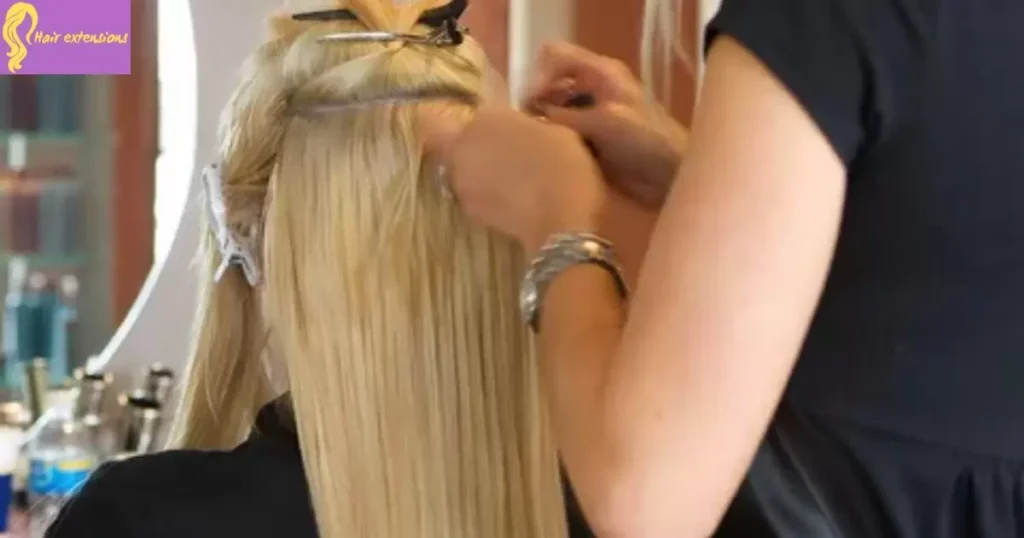When caring for hair extensions, it’s crucial to avoid products and tools that can damage them. Certain shampoos, conditioners, brushes, heating tools, and chemicals can lead to tangling, dryness, and shedding. Proper maintenance is key for making extensions last. Using the wrong products can shorten their lifespan.
Choosing the wrong hair products can ruin your expensive hair extensions. Certain shampoos, brushes, and chemicals can tangle, dry out, and damage “What Not To Use On Hair Extensions?”. For best results, be careful what you put on human hair and synthetic extensions. Proper maintenance will help them last. Follow guidelines on what not to use.
Hair extensions require special care to keep them looking beautiful. Avoid products containing alcohol, sulfate, silicone, and parabens as these can dry out and damage extensions. Don’t use regular brushes or heated tools either. Stick to specialized shampoos, conditioners, brushes and heating tools made for extensions. Being mindful of “What Not To Use On Hair Extensions?” preserves their quality.
Certain Shampoos Can Ruin Extensions
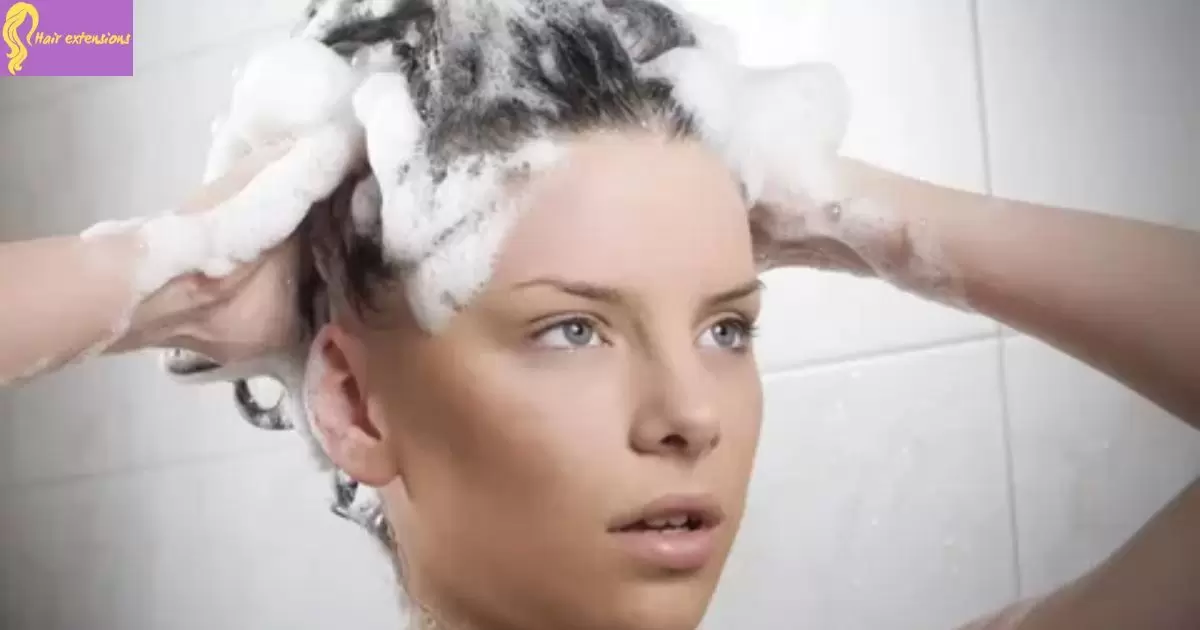
Regular shampoos contain harsh sulfates and alcohols that can dry out and damage hair extensions. Sulfate-free shampoos are specially formulated to gently cleanse extensions without stripping oils. Always use a specialized shampoo made for extensions to help prevent tangling and shedding.
Shampoos with added fragrances, colors and other chemicals can also be problematic for extensions. The chemicals can weaken the bonds and cause irritation. Stick to a gentle, fragrance-free shampoo to safely cleanse extensions and maximize their lifespan.
Silicone-Based Products Cause Buildup
Silicone is found in many hair products, like leave-in conditioners, serums, gels and mousses. While silicone coats and smooths natural hair, it can build up heavily on extensions. This leads to a waxy coating that attracts dirt and tangles.
To prevent buildup, avoid silicone-containing products on your extensions. Carefully read all ingredient lists before purchasing. Opt for lightweight, water-based products instead of heavy silicone formulas. Also use a clarifying shampoo once a week to remove any product residue.
Sulfate Shampoos Lead to Tangling

Sulfate shampoos, found in most drugstore brands, produce lots of lather to clean hair. However, they can be too harsh for hair extensions and cause tangling. Sulfates strip the oils that protect and nourish the hair, leaving it dry and prone to matting.
Choose a high-quality sulfate-free shampoo specifically formulated for extensions and wash gently. Avoid vigorously scrubbing or rubbing the extensions when shampooing. Always use a wide-tooth comb and detangle carefully from the bottom up while wet to prevent tangles.
Avoid Alcohol-Based Styling Products
Hair sprays, gels and mousses often contain alcohol to help hold styles. But alcohol can dry out and damage extensions with repeated use. The alcohol weakens and breaks down the hair cuticles, causing brittle, frizzy locks that tangle easily.
Focus on using alcohol-free, conditioning products to style extensions. Seek out formulas with moisturizing ingredients like aloe vera and coconut oil. Also rely on gentle holds like texture sprays rather than heavy lacquers. Limit use of any alcohol-based products on extensions.
Don’t Use Conditioners With Waxes
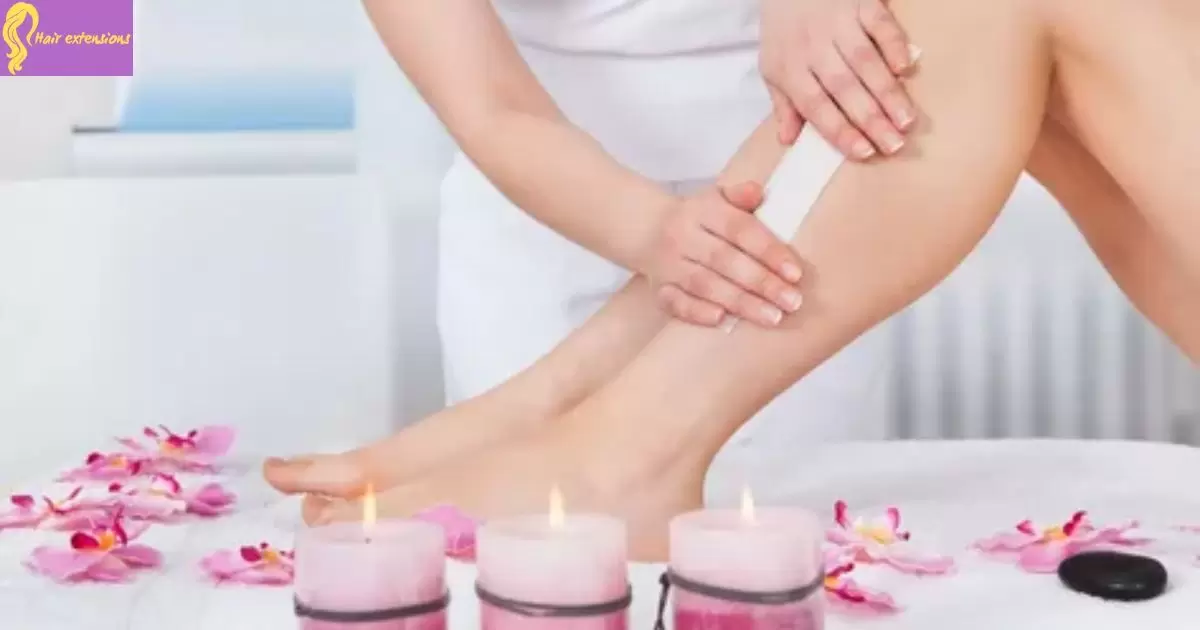
Conditioners help hydrate, detangle and smooth hair. But waxy or heavy conditioning products can coat extensions and attract dirt over time. Petroleum-based ingredients are especially problematic, sticking to the hair and requiring harsh shampoos to remove.
Look for lightweight, silicone-free conditioners made for extensions. Water-based formulas provide moisture without buildup. Make sure to rinse out completely so residue doesn’t linger. Also limit leave-in conditioner use to the mid-lengths and ends only to prevent roots from getting greasy.
Brushing Wrong Damages Extensions
Improper brushing is a main cause of damage to extensions. Using the wrong type of brush or brushing too vigorously can pull, break and mat the extensions. Hard bristles and plastic bristles are too harsh for extensions.
Always use a soft-bristled brush made specifically for extensions. Gently brush from the bottom up in sections to detangle and smooth hair. Avoid yanking or tugging on knots. Never brush dry extensions—wet brushing is best to prevent breakage and shedding.
Heated Tools Cause Shedding
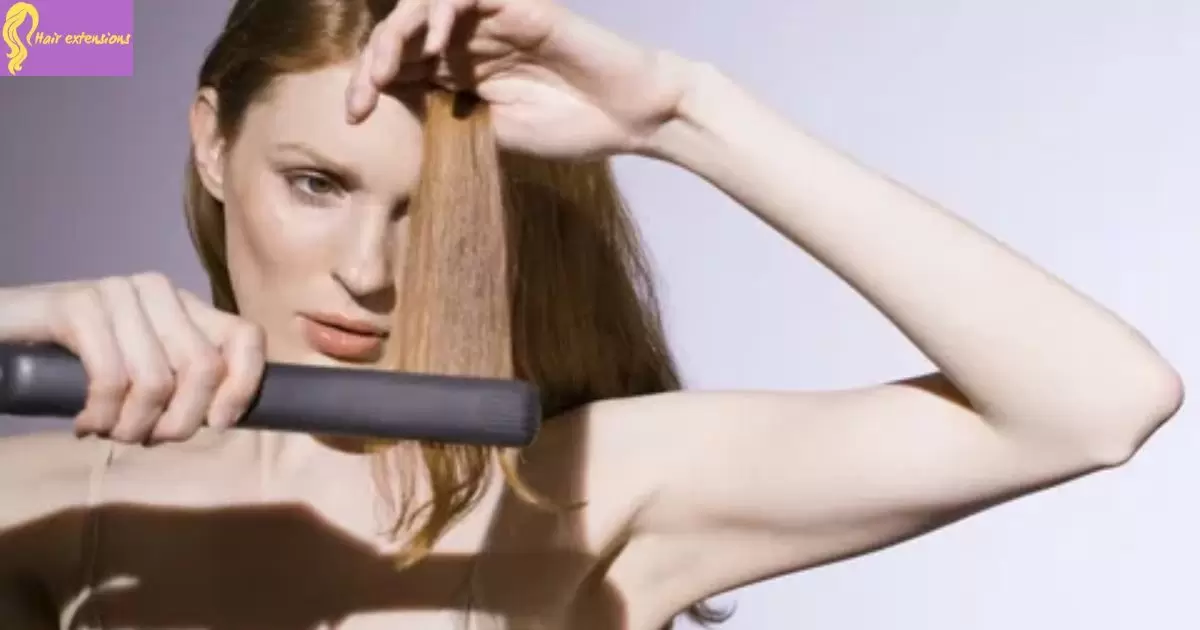
| Heated Tool | Why It Causes Shedding | How to Reduce Shedding |
| Flat iron | High heat damages hair cuticle over time, leading to breakage | Use lower temperature setting suited for extensions; use thermal protectant spray |
| Curling iron | Excessive heat from barrel weakens and dries out hair | Always use heat protectant; keep temperature low to avoid over-drying |
| Blow dryer | Frequent blow drying can cause dryness and brittleness | Limit use of blow dryer; use cool setting; keep dryer moving to avoid concentrated heat |
| Hot rollers | Prolonged direct heat contact dries out hair | Use rollers safely – don’t leave in too long; use heat protection spray |
| Hot air brush | Combination of brushing motion and high heat damages hair | Keep air flow low; gently glide through sections instead of tugging |
Frequent use of heated styling tools like flat irons, curling wands and blow dryers can dry out and weaken extensions. The high heat damages the structure of the hair cuticle over time, leading to breakage and shedding.
Limit the use of hot tools on extensions as much as possible. When heat styling, always use a thermal protectant product first to help minimize damage. Keep the heat on the lowest effective temperature for the hair type. Improper or excessive use of heated styling tools will shorten the lifespan of extensions.
Chemical Processing Weakens Bonds
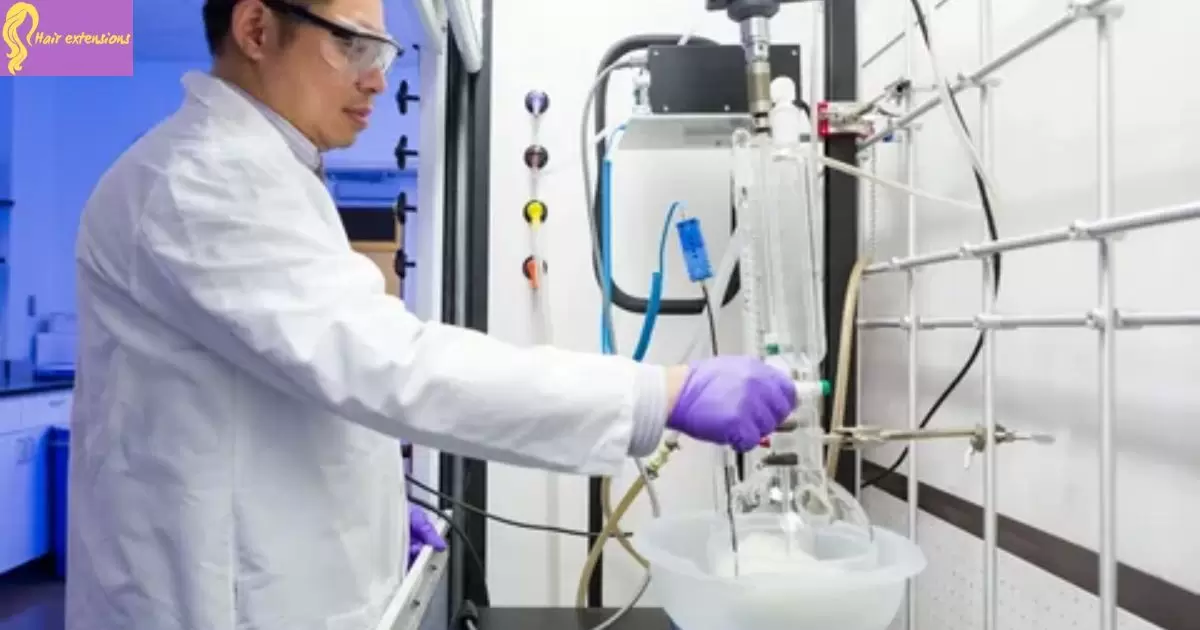
Chemical services like perms, relaxers, bleaching and dyeing require strong chemicals that can damage the bonds holding extensions in place. This causes the extensions to loosen or shed prematurely.
Avoid chemical processing on bonded or taped-in extensions whenever possible. For removable extensions, take them out first before chemically treating your natural hair. If you do need to dye clip-ins or wefts, do a strand test and use a gentle, low-volume developer. Improper chemical use can ruin extensions.
Oil-Based Products Attract Dirt
Oils make hair smooth and shiny, but they also attract dirt and debris to hair extensions. Since extensions don’t get naturally cleansed by the scalp, oils can quickly make them look dirty and dingy.
Use nourishing oils sparingly on extensions, focusing only on the mid-lengths and ends. Always shampoo after oiling to fully remove residue. Stick to lighter oils like Weft Hair Extension argan that absorb well without leaving excess greasiness. Avoid heavier oils that can leave behind buildup.
Read All Instructions For Proper Care
All extension types tapes, wefts, micro links, etc. Require specific care routines. Improperly caring for any style of extensions can damage them and shorten wear. Always read the stylist’s or manufacturer’s instructions for washing, brushing, styling and maintenance.
Different extension materials like synthetics vs. human hair also require customized approaches. Following specific care guidelines helps keep extensions smooth, shiny and securely attached. Proper maintenance is key for getting the most wear and longevity from your investment in extensions.
FAQs
What ingredients can you not use on extensions?
Avoid sulfates, silicones, waxes, and alcohols. These can build up on extensions and cause dryness, tangling, and shedding.
What ingredient is bad for hair extensions?
Silicone causes heavy build up and tangling. Sulfates strip oils leading to dryness. Alcohol dries out the hair. These are the worst ingredients for extensions.
What are the don’ts of hair extensions?
Don’t use regular shampoos, conditioners or brushes. Don’t overuse heated tools. Don’t chemically process. Don’t brush dry or scrub vigorously. Don’t use heavy oils or silicone styling products.
What should you not wash hair extensions with?
Avoid regular shampoos with sulfates and harsh detergents. Use a gentle, sulfate-free formula made specially for extensions. Also avoid soap or products with waxes or oils.
What ingredients damage hair extensions?
Alcohols, sulfates, silicones, waxes and fragrance/dyes can weaken bonds and damage the quality of hair extensions over time. Always check products for these harsh ingredients.
Conclusion
Caring for hair extensions requires using the right products to maintain their quality and longevity. It’s important to avoid ingredients like sulfates, silicones, waxes and alcohols that can build up, dry out the hair and cause damage over time. Read all labels carefully and choose only professional shampoos, conditioners and styling products made specifically for extensions.
Following some basic guidelines on What Not To Use On Hair Extensions? will help prevent tangling, shedding, and other problems. With proper maintenance using the right formulations, your hair extensions will stay looking beautiful and last for many months of wear. Investing in quality extension-safe products is key for protecting your investment and hair.

